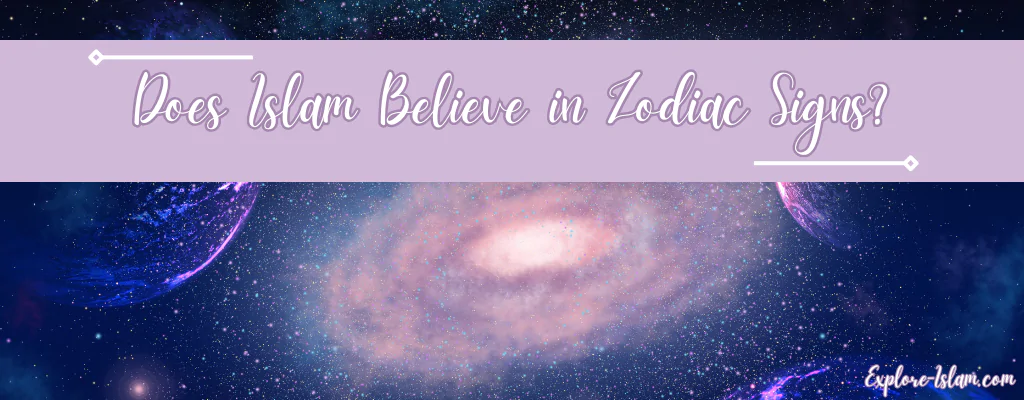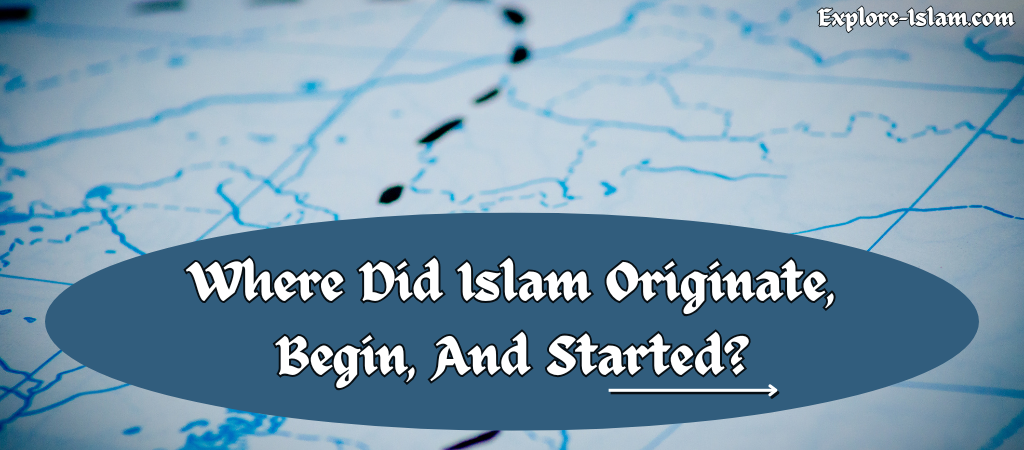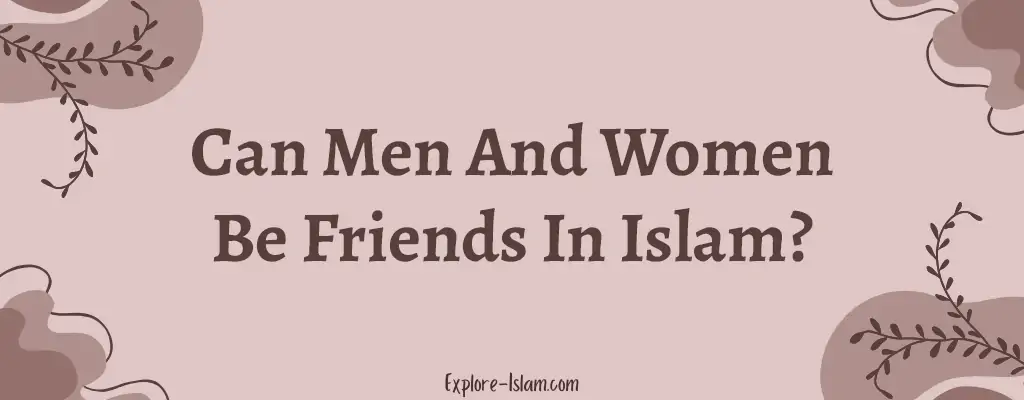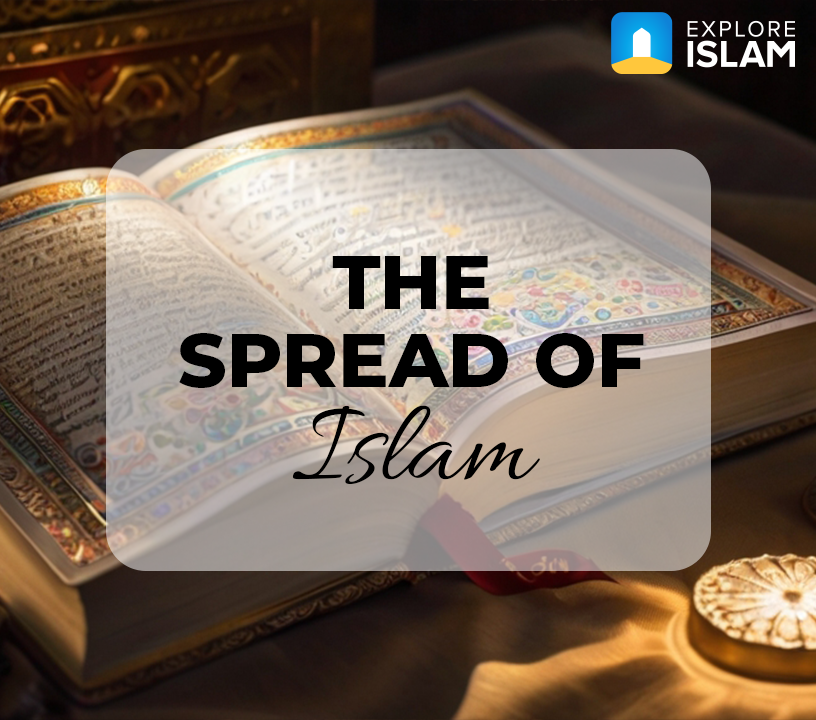Have you ever flipped through a magazine and landed on your horoscope? Or maybe a friend’s excitedly told you, “Of course you’re acting that way, you’re such a Gemini!” The zodiac, with its twelve signs and promises of insight into personality and destiny, is really popular in lots of places.
But where does Islam stand on this ancient system of astrology?
The short answer? Islam categorically rejects astrology and the use of zodiac signs to predict the future or determine a person’s character.
Understanding why requires exploring some fundamental Islamic principles.
Does Islam Believe in Zodiac Signs?
No, Islam does not believe in zodiac signs in the way they are commonly understood in astrology for predicting personality traits or future events. Islamically, this is considered against core religious principles, because it contradicts the Islamic concept of “Tawhid” (the Oneness of God).
Zodiac Signs Contradict the Core of Islamic Belief (Tawhid)
At the heart of Islam lies the concept of Tawhid – the absolute oneness and uniqueness of Allah. This means that Allah alone has knowledge of the unseen (Al-Ghaib), including the future.
To suggest that stars or planetary alignments hold power to influence events and attributing such knowledge or power to celestial bodies or any other creation is seen as diminishing Allah’s unique attributes and potentially bordering on Shirk, the unforgivable sin of associating partners with Allah.
The Quran addresses this clearly:
“And with Him are the keys of the unseen; none knows them except Him. And He knows what is on the land and in the sea. Not a leaf falls but that He knows it; and no grain is there within the darknesses of the earth and no moist or dry [thing] but that it is [written] in a clear record.”
This verse leaves no room for doubt. Allah’s knowledge is all-encompassing. Attributing such knowledge to celestial bodies is a deviation from the true path.
Prophet Muhammad Warned Against Fortune-tellers
The Prophet Muhammad (peace be upon him) strongly warned against fortune-tellers and soothsayers. Consider this hadith:
“Whoever goes to a fortune-teller and asks him about something, his prayers will not be accepted for forty days.”
Notice that the punishment isn’t just for believing the fortune-teller, but even for seeking their counsel. This shows the seriousness with which Islam views any attempt to penetrate the unseen through means other than divine revelation.
Another hadith expands on this:
“He who consults a soothsayer and believes in his sayings, has disbelieved in what was revealed to Muhammad.”
Disbelieving in the authentic message from the prophet means that the person, left the fold of Islam.
Is Zodiac Fortune-Telling Forbidden?
Yes, Zodiac signs as fortune-telling are considered “haram” (forbidden) because they contradict core Islamic beliefs, as we clarified above.
Islam views astrology, including zodiac signs, as a form of fortune-telling and divination.
Again, only Allah knows the future and the unseen (Ghaib). Seeking to predict the future through astrology is seen as a form of disbelief and polytheism (shirk), as it implies knowledge of the unseen that belongs only to Allah.
The Problem with “Harmless” Zodiac Signs
Some may argue, “It’s just fun! What’s the harm?” Islam, however, prioritizes intentionality.
Casually reading horoscopes may seem innocent, but it normalizes reliance on creation over the Creator.
Consider Surah Al-Falaq, where Muslims seek refuge in Allah “from the evil of darkness when it settles, and from the evil of those who blow on knots [witchcraft].”
Astrology, like witchcraft, distracts from tawakkul (trust in Allah).
Is It Permissible to Use Zodiac Signs Solely for Understanding Personality Traits?
No, it is NOT permissible in Islam to use Zodiac signs for the purpose of understanding personality traits. Some might argue, “But my zodiac sign does describe my personality!”.
Islam recognizes that people have different personalities and temperaments. This is part of Allah’s creation. However, attributing these traits to the influence of stars is where the problem lies.
It’s more likely that perceived accuracy in zodiac descriptions stems from:
- Generalizations: Zodiac descriptions are often broad and vague enough to apply to many people.
- Confirmation Bias: We tend to remember the “hits” that seem accurate and forget the “misses.”
- Self-Fulfilling Prophecy: If we believe we’re supposed to act a certain way, we might unconsciously behave in that manner.
Final Word for Brothers and Sisters…
Despite the Islamic stance, I know that the appeal of zodiac signs persists. Perhaps it stems from a natural human desire to understand ourselves, our futures, and to find comfort in the face of uncertainty. Zodiac signs often offer seemingly personalized insights and predictions, which can be alluring.
However, as Muslims, we find true solace and guidance in our relationship with Allah. The Quran and Sunnah provide a comprehensive framework for life, offering ethical principles, moral guidance, and spiritual nourishment that far surpasses the superficial insights offered by astrology.
Let us, therefore, turn our gaze towards the Divine, seeking knowledge and guidance from the authentic sources of Islam, and find true certainty and peace in our unwavering faith in Allah, the All-Knowing.
Islam liberates believers from the anxiety of zodiac predictions. Our destiny (qadar) is in Allah’s hands, and true guidance comes through Him alone. The Quran reassures:
“No disaster strikes except by permission of Allah. And whoever believes in Allah – He will guide his heart. And Allah is Knowing of all things.”
So, the next time you encounter a horoscope, let it be a reminder to turn to Allah, the One who created the stars, set their courses, and holds your future with infinite wisdom.
Finally, you are welcome to visit our blog if you would like to see more Fatwas and content relating to Islam and comparative religion.









